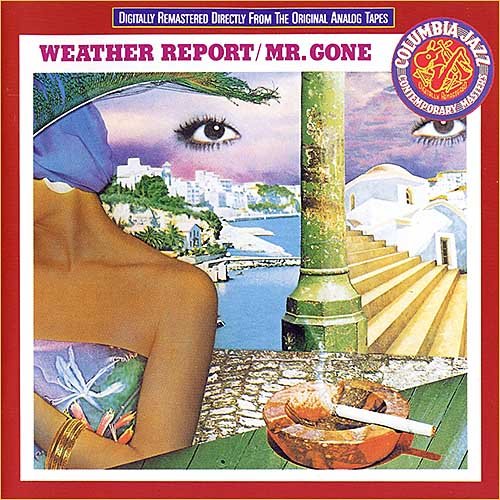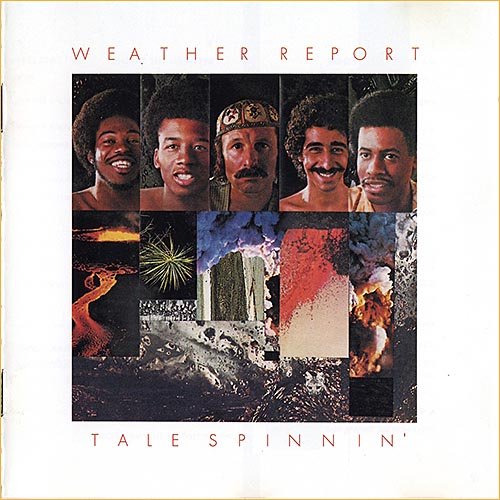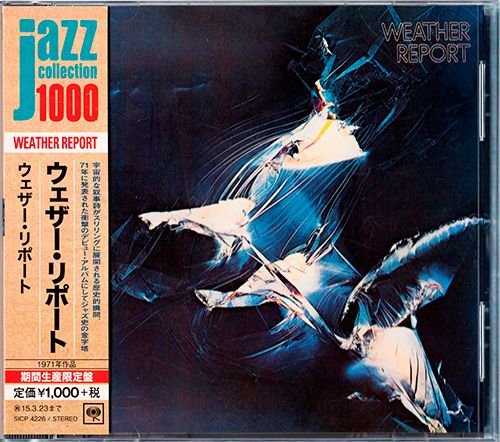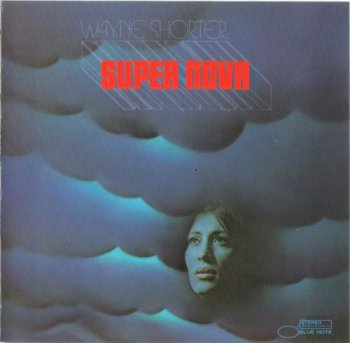The Lovin' Spoonful: 5 Albums - Mini LP Blu-spec CD2 Sony Music Japan 2016
Lossless Galaxy Release The Lovin' Spoonful: 5 Albums Mini LP Blu-spec CD2 Sony Music Japan 2016 Performer: The Lovin' Spoonful Box / Albums: 1965 Do You Believe In Magic • 1966 Daydream 1966 Hums Of The Lovin' Spoonful • 1967 Everything Playing 1968 The Best Of The Lovin' Spoonful Volume 2 (Mini LP Blu-spec CD2 Sony Music Japan 2016) Info: Kama Sutra / Sony Music Japan Cardboard Sleeve (Mini LP) / Blu-spec CD2 Mono Stereo / Limited Release Catalog CDs: SICP-31006~10 Made in Japan Dynamic
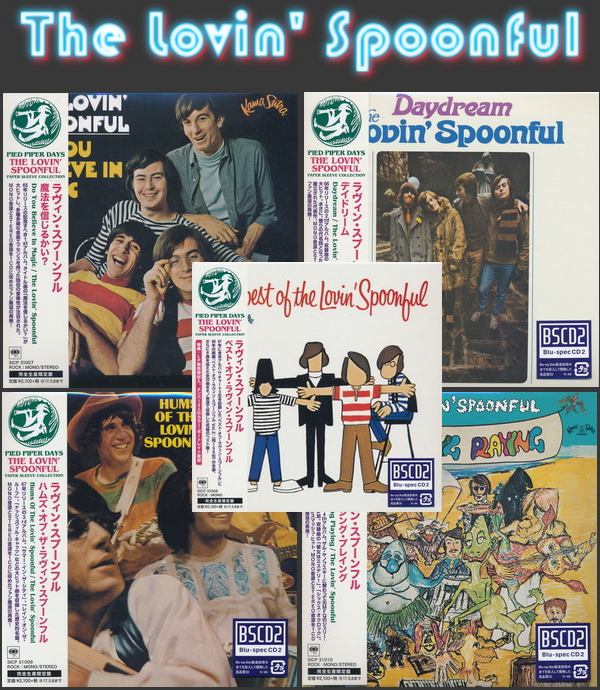
The Lovin' Spoonful: 5 Albums - Mini LP Blu-spec CD2 Sony Music Japan 2016
Lossless Galaxy Release The Lovin' Spoonful: 5 Albums Mini LP Blu-spec CD2 Sony Music Japan 2016 Performer: The Lovin' Spoonful Box / Albums: 1965 Do You Believe In Magic • 1966 Daydream 1966 Hums Of The Lovin' Spoonful • 1967 Everything Playing 1968 The Best Of The Lovin' Spoonful Volume 2 (Mini LP Blu-spec CD2 Sony Music Japan 2016) Info: Kama Sutra / Sony Music Japan Cardboard Sleeve (Mini LP) / Blu-spec CD2 Mono Stereo / Limited Release Catalog CDs: SICP-31006~10 Made in Japan Dynamic
06 10, 2025
Kraftwerk: 2017 3-D The Catalogue - 8CD Box Set Parlophone Records
Lossless Galaxy Release Kraftwerk: 2017 3-D The Catalogue 8CD Box Set Parlophone Records Performer: Kraftwerk Box / Albums: 2017 3-D The Catalogue 1974 Autobahn ● 1975 Radio-Activity ● 1977 Trans Europe Express 1978 The Man-Machine ● 1981 Computer World ● 1986 Techno Pop 1991 The Mix ● 2003 Tour De France (8CD Box Set Parlophone Records Box Set Parlophone Records) Info: Parlophone Records / Klingklang Produkt Ralf Hütter Catalog Box: 0190295873424 Catalog CDs: 0190295873417 • 0190295873400 •
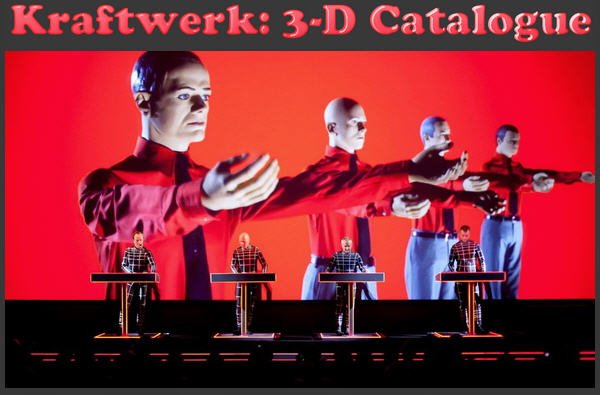
Kraftwerk: 2017 3-D The Catalogue - 8CD Box Set Parlophone Records
Lossless Galaxy Release Kraftwerk: 2017 3-D The Catalogue 8CD Box Set Parlophone Records Performer: Kraftwerk Box / Albums: 2017 3-D The Catalogue 1974 Autobahn ● 1975 Radio-Activity ● 1977 Trans Europe Express 1978 The Man-Machine ● 1981 Computer World ● 1986 Techno Pop 1991 The Mix ● 2003 Tour De France (8CD Box Set Parlophone Records Box Set Parlophone Records) Info: Parlophone Records / Klingklang Produkt Ralf Hütter Catalog Box: 0190295873424 Catalog CDs: 0190295873417 • 0190295873400 •
06 10, 2025
GOOD OLD ROCK’N’ROLL!!! «Exclusive for Lossless-Galaxy collection» Part 3 (38 × CD • Remastered • 1960-2025)
Performer: Various Album / collection: «OLDER! Rock’N’Roll — 1St Press — Remastered» Part 3 Label: (c)(p) 1960-2025 生産ヨーロッパとアメリカ Source: Rip by KoGGaN™ scans by inet… Official DR value: •12•12•7•14•11•6•11•8•8•7•8•7•8•12•10•8/8•6•9•8•10•10•9•8•7•7• •9•8•8/8•10•10•15•13•13•12•13•12•6•9• Catalog (Barcode): much… Genre / Style: Pop, Rock, Classic Rock, Pop Rock, Rock’N’Roll, Glam, AOR Year (info): 1960-2025 (38 × CD, 1St Press + Remastered, Collection—) Format: WV (image + .cue) Bitrate: lossless
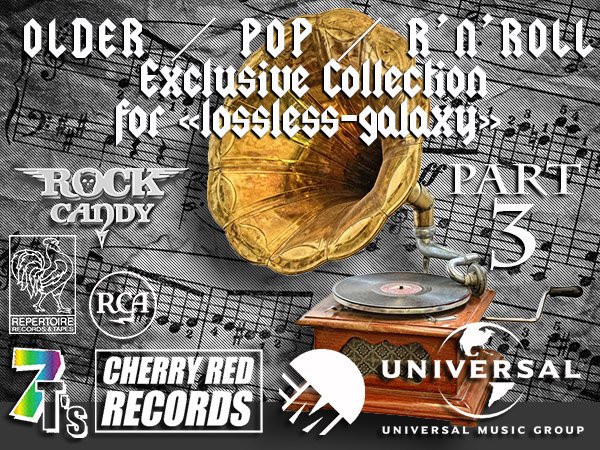
GOOD OLD ROCK’N’ROLL!!! «Exclusive for Lossless-Galaxy collection» Part 3 (38 × CD • Remastered • 1960-2025)
Performer: Various Album / collection: «OLDER! Rock’N’Roll — 1St Press — Remastered» Part 3 Label: (c)(p) 1960-2025 生産ヨーロッパとアメリカ Source: Rip by KoGGaN™ scans by inet… Official DR value: •12•12•7•14•11•6•11•8•8•7•8•7•8•12•10•8/8•6•9•8•10•10•9•8•7•7• •9•8•8/8•10•10•15•13•13•12•13•12•6•9• Catalog (Barcode): much… Genre / Style: Pop, Rock, Classic Rock, Pop Rock, Rock’N’Roll, Glam, AOR Year (info): 1960-2025 (38 × CD, 1St Press + Remastered, Collection—) Format: WV (image + .cue) Bitrate: lossless
06 10, 2025
Жанры
Lossless Galaxy Release
Русская музыка
--Поп
--Рок
--Панк
--Альтернатива
--Металл
--Рэп, Хип-Хоп, R'n'B
--Джаз и Блюз
--Фолк
--Шансон, Авторская песня
--СССР
Зарубежная музыка
--Pop
--Rock
--Hard Rock
--Progressive & Art-Rock
--Pop-Rock & Soft Rock
--Instrumental Rock
--Heavy, Traditional, Industrial Metal
--Power, Gothic, Sympho Metal
--Thrash, Speed, Groove, Modern Metal
--Death, Melodic Death, Doom, Dark Metal
--Black, Pagan, Folk, Viking Metal
--Alternative
--Punk
--Disco, Eurodance
--Rap, Hip Hop, R'n'B
--Reggae, Ska, Dub
--Jazz, Blues, Soul
--Folk, Country, Ethnic
--Electronic, Ambient, New Wave
--House, Techno, Trance
Другие жанры
--New Age, Relax, Meditative & Flamenco
--Chillout, Lounge, Downtempo, Trip-Hop
--Drum & Bass, Jungle, Breakbeat, IDM
--Classical / Классическая музыка
--Soundtrack
--Музыкальные сказки
Vinyl Rip
HI-Res / DVD-Audio / DTS
--SACD
--DSD
--DVD-Audio
Сборники Lossless-Galaxy
Альбомы 2022
Альбомы 2023
Альбомы 2024
Теги
1st Press 2022 2023 2024 2025 70... AOR Black Metal Blues Blues Rock Bootleg Series Classic Rock Death Metal Discography Exclusive for Lossless-Galaxy Folk Rock Fusion Hard Rock Heavy Metal Hi-Res Japanese Edition Jazz Jazz Rock lossless Melodic Death Metal Melodic Rock Modern Electric Blues Pop Pop Rock Power Metal Prog Rock Progressive Metal Progressive Rock Psych Rock Psychedelic Rock Rock SACD Symphonic Metal Thrash Metal Дискографии от KoGGaN
Архивы
Опрос
В каком формате хотели бы видеть релизы на сайте ?
 Автор: LeddZepp, 17 февраля 2024, Комментариев: 0, Просмотров: 382
Автор: LeddZepp, 17 февраля 2024, Комментариев: 0, Просмотров: 382Wayne Shorter - Super Nova [Japan Ed.] (1969)
![Wayne Shorter - Super Nova [Japan Ed.] (1969)](/uploads/posts/2024-02/wayneshorter69supernova_500.jpg)
Year: 1969 (CD Oct 22, 2014)
Label: Universal Music (Japan), UCCQ-5054
Style: Post Bop, Free Jazz, Fusion
Country: New Jersey, U.S. (August 25, 1933 – March 2, 2023)
Time: 38:01
Format: Flac Tracks 16/44,1 kHz
Size: 264 Mb
В марте 2023 года не стало великого Уэйна Шортера - саксофониста и композитора, во многом определившего звучание всего современного джаза. Он оставил после себя немалое творческое наследие, которое включает не только работу в легендарных ансамxxxх (прежде всего в квинтете Майлза Дэвиса, The Jazz Messengers Арта Блэйки и группе Weather Report), но и множество альбомов Шортера-лидера. Некоторые из них сразу же стали джазовой классикой, иные дожидались своего часа на протяжении долгих лет. Илья Белоруков осмысливает колоссальную дискографию музыканта и выделяет в ней как безусловные вершины, так и недооцененные сокровища.
Манера игры Уэйна Шортера сильно отличается от игры типичных саксофонистов. Звук его саксофонов, сопрано и тенора, всегда словно высушен и предельно конкретен. Его игра зачастую очень скупа, что говорит об умении слушать ансамбль и найти свое место в нем. Это правда - Шортер никогда не был тем музыкантом, который при любой возможности начинает тянуть внимание на себя за счет огромного количества нот или же спецэффектов и расширенных техник. При этом он легко побеждал в известных опросах журнала DownBeat в категории лучшего сопрано-саксофониста на протяжении десяти лет подряд по версии критиков и 18 лет - по версии читателей. Некоторый спад в исполнительском мастерстве стал заметен лишь после того, как музыканту перевалило за восемьдесят (он умер в возрасте 89 лет). Но даже тогда Уэйн легко компенсировал утрату физической сноровки опытом.
Полная версия: dzen.ru/a/ZH2ZxuqSUmBxPK-u
Часть музыкантов принимавших участие в записи:
John McLaughlin – acoustic and electric guitar
Chick Corea – drums, vibes
Walter Booker – acoustic guitar
Maria Booker – vocals
01. Super Nova (04:52)
02. Swee-Pea (04:37)
03. Dindi (09:36)
04. Water Babies (04:55)
05. Capricorn (07:48)
06. More Than Human (06:11)




При желании можно посмотреть все мои публикации на сайте. Приятного прослушивания. Жмём и смотрим (Click to see all of my posts)!
Внимание! У Вас нет прав для просмотра скрытого текста.
Похожие новости:
Комментарии отсутствуют
Добавить комментарий!
Информация
Посетители, находящиеся в группе Гости, не могут оставлять комментарии к данной публикации.

![Weather Report - Weather Report [Japan Edition] (1971)](/uploads/posts/2022-05/1652631627_weatherreport71weather_500.jpg)
